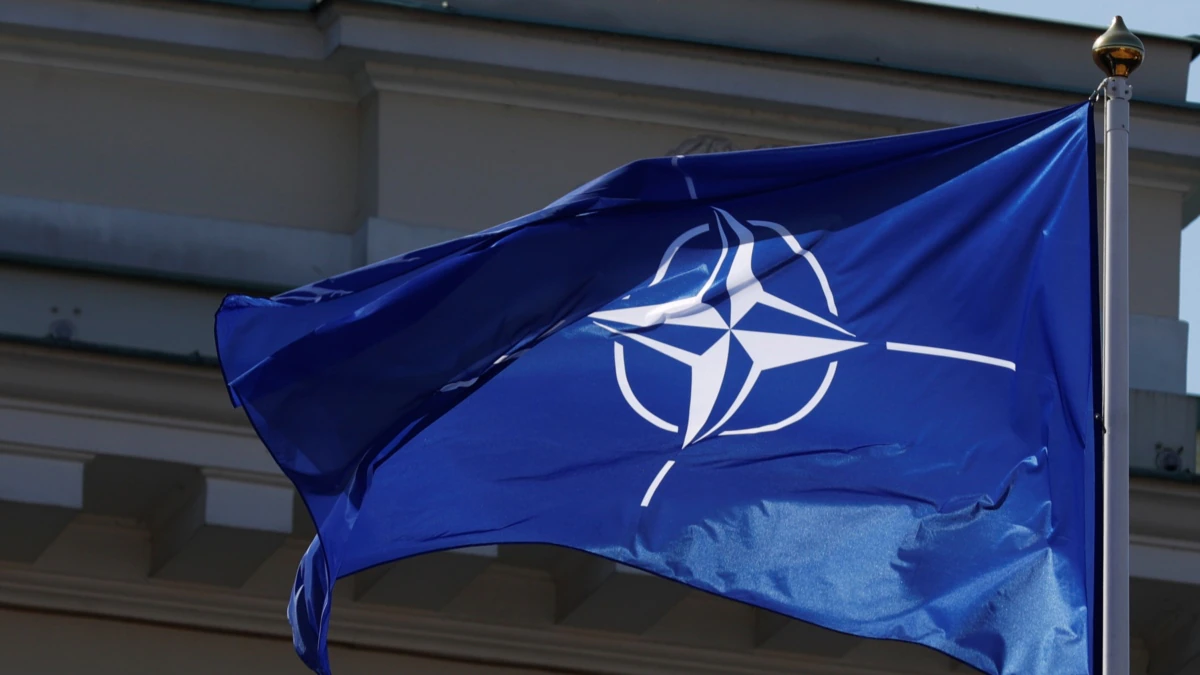U.S. President Joe Biden is in Brussels for a NATO summit on June 14 as he continues a European tour dedicated to repairing relations and reassuring Washington’s transatlantic partners after four tumultuous years of his predecessor, Donald Trump.
Biden will join the summit with the leaders of all 30 members of the alliance, and hold a private meeting with Turkish President Recep Tayyip Erdogan at a time relations between the two NATO members is particularly tense.
After not meeting face to face since 2018 because of the coronavirus pandemic, alliance members have plenty of hot topics to deal with, including an ongoing pullout of troops from Afghanistan, relations with Russia and China, and defense spending.
Ahead of the summit, NATO chief Jens Stoltenberg said the meeting comes “at a pivotal moment for our Alliance, and for our collective security” and presents a “unique opportunity” to renew ties.
During his four-year term that ended when Biden was inaugurated in January, Trump often denigrated NATO and even threatened once to pull out of the security alliance.
But with Biden coming off a G7 summit where he proclaimed that the United States “is back” and reconnecting with its allies, little drama and a lot of agreement is expected during the talks in the Belgian capital.
“We must respond to many threats and challenges at the same time,” Stoltenberg said at a pre-summit briefing on June 11.
“Russia and China are pushing back against the rules-based international order; the continuing threat of terrorism; sophisticated cyberattacks; disruptive technologies; and climate change. No country and no continent can deal with all these challenges alone. But Europe and North America are not alone. We stand together in NATO,” he said.
One of the main goals at the summit will be to make progress on a new strategic concept, known as NATO 2030, which was set in motion after Trump questioned the security alliance’s relevance. The new framework is expected to be adopted in 2022.
NATO last updated the outline of its purpose in 2010 and Stoltenberg said the security threats and challenges now faced have since changed.
Jamie Shea, president of the Center for War Studies and a NATO official for almost four decades before he left the organization in 2018, said that while there is a lot of important business for leaders to address during the summit, the key thing for Biden will be to simply reassert the Washington’s commitment to the defense of NATO.
“This may seem like sort of a no-brainer because Biden has made several statements to this effect since he became president but…this is his first summit since he was elected, his first overseas trip, and it’s okay to do it in media interviews but it’s important to do it in the North Atlantic Council chamber with all of the allies present,” he said.
“They (the allies) would always want the NATO summit to be used by the U.S. president to do what Trump always signally refused to do, which was to commit publicly to the Article 5 collective defense guarantee but particularly at this moment they’ll want to hear that,” he added.
Biden has already reversed a Trump decision to pull U.S. troops out of long-time ally Germany, while pressure remains for European allies to pay more towards their own security.
Having strengthened its capability to carry out its core mission of defending Europe following Russia’s 2014 annexation of Crimea, NATO’s new strategy outline will aim to be more ambitious.
This includes new policies to meet an evolving strategic environment, including Russian aggression, addressing challenges posed by China for the first time, terrorism, cyber threats, and climate change, the White House said ahead of the summit.
Ukraine is also pressing for negotiations on joining the Western military alliance since it was promised in 2008 that there was a pathway to membership, citing Russia’s ongoing support for separatists in eastern Ukrainian and occupation of Crimea.
The Kremlin has warned NATO several times against admitting Ukraine.
The meeting with Erdogan comes as relations between the United States and Turkey have deteriorated in recent years over a growing number of issues, including Ankara’s purchase of Russia’s S-400 weapons system, democratic backsliding in Turkey, and U.S. support for Kurdish-led forces in Syria that Ankara considers linked Kurdish militants fighting a nearly four-decade war against the Turkish state.
With reporting by Reuters, AP and AFP


















